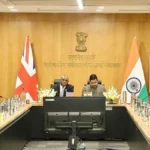Andhra Pradesh’s Geological Links with Gondwana Supercontinent
Discovery of Geological Links
Recent research has highlighted the geological connections between Andhra Pradesh and the ancient Gondwana supercontinent. This discovery is based on studies of rock formations and fossil records that align with those found in other parts of the former supercontinent, including Africa, South America, Antarctica, and Australia.
Implications for Geological Studies
The discovery has significant implications for geological studies in India, providing new insights into the region’s geological history. It helps in understanding the movement and interaction of tectonic plates and the formation of the Indian subcontinent. This knowledge is crucial for predicting geological events like earthquakes and volcanic activity, which have direct implications for public safety and infrastructure planning.
Contributions to Paleontology
The findings also contribute to paleontology, offering evidence of ancient life forms that existed millions of years ago. Fossils found in Andhra Pradesh can now be compared with those in other Gondwana regions, helping scientists to piece together the biodiversity and ecological conditions of the supercontinent.
Economic and Environmental Impact
Understanding the geological history of Andhra Pradesh has potential economic benefits. It can lead to the discovery of new mineral resources, contributing to the region’s economy. Additionally, better knowledge of the geological landscape can aid in environmental conservation efforts, ensuring sustainable use of natural resources.
Educational and Research Opportunities
This discovery opens up new avenues for education and research. Universities and research institutions in Andhra Pradesh can leverage these findings to enhance their geological and paleontological studies. This will not only attract students and researchers but also foster collaborations with international institutions.

Why this News is Important
Enhancing Geological Knowledge
The discovery of Andhra Pradesh’s geological links with the Gondwana supercontinent is a significant milestone in geological studies. It enhances our understanding of the region’s geological past, providing valuable data that can be used in various scientific and practical applications.
Predicting Natural Disasters
Knowledge of tectonic plate movements and geological formations is crucial for predicting natural disasters. This discovery aids in improving predictive models for earthquakes and volcanic activity, which can save lives and prevent damage to infrastructure.
Economic Benefits
The potential economic benefits of this discovery are substantial. Identifying new mineral resources can boost the local economy, creating jobs and fostering industrial growth. This is particularly important for a developing region like Andhra Pradesh.
Educational Advancements
For students and researchers, this discovery opens up new fields of study and research. It provides a unique opportunity to explore ancient geological formations and fossil records, contributing to the global body of knowledge in geology and paleontology.
Historical Context
Gondwana Supercontinent
Gondwana was a supercontinent that existed from the Neoproterozoic era until the Jurassic period. It included regions that are now part of Africa, South America, Antarctica, Australia, and the Indian subcontinent. The breakup of Gondwana played a crucial role in shaping the current geological landscape of these areas.
Plate Tectonics
The theory of plate tectonics, developed in the mid-20th century, explains the movement of Earth’s lithospheric plates. This movement is responsible for the formation of continents, mountain ranges, and ocean basins. The study of Gondwana’s breakup is essential for understanding these processes.
Fossil Records
Fossil records from Gondwana provide critical insights into the biodiversity and ecological conditions of the past. These records help scientists understand how life evolved and adapted to changing environments over millions of years.
Key Takeaways from Andhra Pradesh’s Geological Links with Gondwana Supercontinent
| Serial Number | Key Takeaway |
|---|---|
| 1 | Discovery of rock formations and fossils linking Andhra Pradesh to Gondwana. |
| 2 | Implications for understanding tectonic plate movements and geological history. |
| 3 | Contributions to paleontology by comparing fossils from Gondwana regions. |
| 4 | Potential economic benefits from new mineral resource discoveries. |
| 5 | Opportunities for educational and research advancements in geology and paleontology. |
Important FAQs for Students from this News
What is the Gondwana supercontinent?
Gondwana was an ancient supercontinent that existed from the Neoproterozoic era until the Jurassic period. It included what are now Africa, South America, Antarctica, Australia, and the Indian subcontinent.
Why is the discovery of geological links between Andhra Pradesh and Gondwana significant?
The discovery provides insights into the region’s geological history, helps predict natural disasters, has potential economic benefits through mineral discoveries, and enhances educational and research opportunities.
How does this discovery impact geological studies?
It enhances our understanding of tectonic plate movements, geological formations, and the ancient history of the Indian subcontinent, aiding in the prediction of geological events.
What are the potential economic benefits of this discovery?
The discovery can lead to the identification of new mineral resources, boosting the local economy and creating job opportunities in Andhra Pradesh.
How does this discovery contribute to paleontology?
It provides evidence of ancient life forms and helps compare fossil records from other Gondwana regions, offering a clearer picture of the biodiversity and ecological conditions of the supercontinent.
What role does plate tectonics play in this discovery?
The theory of plate tectonics explains the movement of Earth’s lithospheric plates, which is crucial for understanding the formation and breakup of supercontinents like Gondwana and their impact on the current geological landscape.
Some Important Current Affairs Links

















